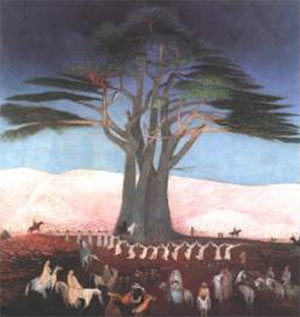In prior generations our role as co-creators with God was easier to perceive. Dependence on the natural world led early humans to perceive that the divine was immanent. This remains a common aspect of religious inspiration.
A hundred or more generations went by before we began to understand the possibility of a transcendent God. But still, we experienced God in daily life, we understood that God worked through humans, most humans could not imagine an existence without God.
But today - at least in the modern West - most of us are detached from nature and perceive we are largely self-created. The ideology of individualism is sufficiently strong to complicate every relationship and especially a dependent relationship with a loving God.
People of faith are called to relationship. We find that apart from God there is no meaning or purpose or joy. We find that only in relationship with God does our individuality make sense. We find that only in working with God is our work able to be truly fruitful.
Dear God, thank you for visiting the earth. May I be a good, generous, and attentive host. May I set aside my plans in order to be with you.










